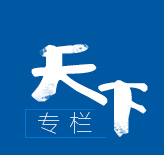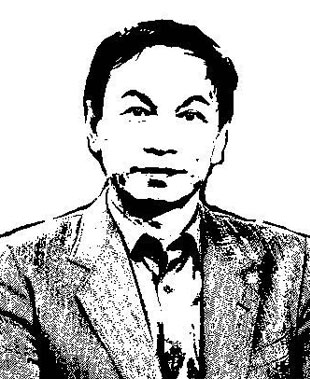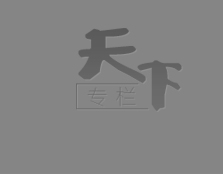不知道为什么,我总爱读郑板桥的诗词作品。虽然,他的诗词没有几首能让人记住并脱口背诵的,而且他的文字也不够精美,但是他的个性,他为人处世的态度,特别是他关注贫民百姓疾苦并为之代言的悲天悯人情怀让我感动。可以说,他是生活在清代为数不多的现实主义作家,敢于说真话的诗人,颇有杜甫的遗风。
郑板桥生活的年代,是有名的“清三世”(康熙、雍正、乾隆)“全盛时期”,也是“文字狱”猖獗的年代。郑板桥是他的号,官名为郑燮,字克柔,号板桥,江苏兴化人,生于1693年,卒于1765年,以三绝——诗书画——闻名于世,为“扬州八怪”之一。
郑板桥生活的时代,古体诗词还算通用文体。众所周知,唐代曾辉煌的古体格律诗在宋朝就衰落了,宋词的崛起代替了古体格律诗,后来随着元杂剧、明清话本、戏剧以及和小说的兴起,古体诗词到了清代也不成为最主要文学样式。但是文人雅士上至皇帝下至书生,还抱着这古旧的文体不放,都愿意摆弄一些古体诗词。特别是衰落了几个朝代的长短句在这个时期有了一点小起色。但是歌功颂德、附庸风雅的作品多,真正能流传下来的好作品少,而敢于直面现实的作品就更少。严格来说,郑板桥诗词的艺术成就属于一般,在文学史上没有什么地位,远不如他的书法和绘画有更深远的影响。但是,相比同时代的文人而言,他的诗词敢于直言,因此成为那个时代人民真实生活的写照。甚至有人称他为“小杜甫”。
郑板桥出身贫寒,生活环境使他对百姓疾苦有共鸣,况且他为人正直,即使做官后也关心百姓疾苦。特别是他看透官场的腐败和黑暗辞官后,又和百姓生活在一起。所以,他的诗词作品总是能道出百姓的心声,成为百姓疾苦的代言。
百姓为什么生活得贫苦?他认为是悍吏造成的。他和百姓一样痛恨悍吏。他眼中的悍吏“悍吏沿村括稻谷。豺狼到处无虚过”。“悍吏贪勒为刁奸”。 (《悍吏》,《板桥诗词撷英》广西人民出版社1983年版22页)。但是他天真地认为皇帝是好的,都是悍吏搜刮百姓造成的。这些悍吏中饱私囊,搜刮不够,就动用私刑:“又值奸刁取自肥;一丝一粒尽搜索,但凭皮骨当严威。”“斩筋夹髓剔毛发”。“雷霆收声怯吏威,云昏雨黑苍天泣。”(《私刑恶》,《板桥诗词撷英》广西人民出版社1983年版24页)
百姓生活得怎样疾苦呢?“晨起缝破衣,针线不成行。母年七十四,眼昏手又僵。”(引自《李氏小园》《板桥诗词撷英》广西人民出版社1983年版50页) “十日卖一儿,五日卖一妇,来日剩一身,茫茫即长路。长路迂以远,关山杂豺虎。天荒虎不饥, 肝人伺岩阻。”(《逃荒行》,《板桥诗词撷英》广西人民出版社1983年版74页)真是民不聊生,水深火热。他所描写的景象与杜甫的“三吏”“三别”颇为相似,而且其悲惨更为甚之,老虎因为吃逃荒的人多了,一点都不饥饿了。这是多么悲惨的画面!
即使年景稍微好一点,可以返回家乡了。其情景不是喜悦而是更加凄凉:“井蛙跳我灶,狐狸睡我床。”“念我故妻子,羁卖东南庄。”去赎回妻子的时候,其妻“摘下乳下儿,抽刀割断肠。其儿知永绝, 抱颈索阿娘。坠地几翻覆,泪面涂泥浆。”又是一番生离死别的场面。“后夫携儿归, 独夜卧空房;儿啼父不寐, 灯短夜何长!”(《还家行》,《板桥诗词撷英》广西人民出版社1983年版78页)一家团圆,却造成另一家分离,其日子怎么能过得好呢?
郑板桥还特别同情孤儿,写了好几首有关孤儿无依无靠、受尽侮辱和生活凄凉的诗。“孤儿着破衣”, 食别人遗弃的骨头。喂马时草叶子伤了手指,“血流泻泻。 孤儿不敢言痛,阿叔不顾视。”(《孤儿行》,《板桥诗词撷英》广西人民出版社1983年版66页)而阿叔自己的亲娇儿穿皮裘,食美食。一个天上一个地下。写尽了人间的世态炎凉。而“十岁丧父,十六丧母”的另一孤儿,更惨。被人收养,成为这一家人的眼中钉,肉中刺。“孤儿汲水大江边,失足落江水,邻救得活全。”而这家人得知非但“不谢邻舍”,还“朝不与食,暮不与栖止。”不问生死。孤儿只好住野庙,乞讨过活。后来有贼强逼去偷盗,被官府逮住,这家人“悉力买告,令诬涅与贼同归。”被官府处死,“痛孤冤毒。行刑人泪相续。”(《后孤儿行》,《板桥诗词撷英》广西人民出版社1983年版68页69页)
郑板桥笔下的《姑恶》也让人读了心痛。一个十二岁的小童养媳入了家门,被小姑子意指气使折磨得不成样子。不是打,就是骂,连牛马都不如,“折薪纤手破,持热十指枯。”“今日肆詈骂,明日鞭挞俱。五日无完衣,十日无完肤。”就连向壁而哭也不行,小姑子听到后认为是在诅咒她,举刀就要来砍。这个十二岁的小女子,只盼望着早点死,去投江湖,喂鱼鳖,“免受此毒荼”。可是她寻死也不能。“疤痕掩破襟,秃发云病疏。一言及恶姑,生命无须臾。”(《恶姑》, 《板桥诗词撷英》广西人民出版社1983年版70——71页)
百姓生活在水深火热之中,郑板桥看不到希望,“绕郭良田万顷赊,大都归并富豪家。可怜北海穷荒地,半篓盐挑又被孥。”(《潍县竹枝词之三》《板桥诗词撷英》广西人民出版社1983年版95页)。他为了改变在饥荒年民不聊生的状况,曾未经批准擅自动用官粮舍粥,但是仍改变不了穷人卖儿鬻女的状况。正因为如此他失望到了极点,就连作画也辛酸:“横涂竖抹千千幅,墨点无多泪点多。”(《题屈翁山诗札》,《板桥诗词撷英》广西人民出版社1983年版88页)正由于这样,他决定辞官“乌纱掷去不为官,囊囊萧萧两袖寒,写取一枝清秀竹,秋风江上作渔竿。”(《予告归里,画竹别潍县绅士民》《板桥诗词撷英》广西人民出版社1983年版91——92页)
正因为看不到光明,他变得桀骜不驯,特立独行。“咬定青山不放松,立根原在破岩中,千磨万击还坚劲,任尔东西南北风。”(《竹石》,《板桥诗词撷英》广西人民出版社1983年版93页)他喜欢钓鱼,借钓鱼放松心情和世间烦恼:“老渔翁,一钓竿,靠山崖,傍水湾。遍舟来往无牵绊,沙欧点点轻波远,荻港萧萧白昼寒,高歌一曲斜阳晚。”(《道情十首》,《板桥诗词撷英》广西人民出版社1983年版101页)有时候收获不少“蒲筐包蟹,竹笼装虾,柳条穿鲤。”到集市上换酒,“人与沙欧同醉,卧苇花一片茫茫,夕阳千里。”(《瑞鹤仙》,《板桥诗词撷英》广西人民出版社1983年版131——132页)偶尔吃上一块自家种的瓜,也快乐得似神仙,笑看那些在官场不知道隐退的家伙:“五色嘉瓜美”, “多少金台名利客”“总不作,抽身计” ,“空日费,官仓米”。
去官以后,板桥卖画为生,公元1765年死于贫困潦倒。他的书法自成一体,绘画也技艺精湛,风格独特,成为后人学习的楷模。
今天我们重读郑板桥的诗词,仍为他为人刚直不阿、时刻关心百姓疾苦的精神所感动。做官的如果都能像他那样两袖清风,体贴下情,把民生问题看得比天大,我们的社会就会更加和谐。此外,他的悲天悯人的情怀也值得我们的作家、文学家去学习。只有沿着现实主义道路前行,与人民同呼吸,共命运,想人民之所想,急人民之所急,才能为人民所喜爱所景仰。
Reading Zheng Banqiao
By Wang Yongli
I don't know why I prefer reading Zheng Banqiao's poetry. Although among his poems only a few can people remember and recite, and many scholars think his words are not as beautiful as those of Li Bai or Du Fu, I am moved by his personality and his attitude to life, especially his concerns for people who suffer hunger and cold. He actively campaigned to improve living conditions for impoverished people, as well as merely writing poems that expressed compassionate feelings for them. It can be said that he was one of the few realistic writers of the Qing Dynasty, a person who dared tell the truth, a critical poet who inherited Du Fu's legacy.
Zheng Banqiao lived his lifetime during the heyday of the Qing Dynasty (under emperors Kangxi, Yongzheng, and Qianlong). A time which was also however the rampant time of "the Inquisition". Zheng Banqiao was his nickname, his formal title was Zheng Xie, and his penname Kerou, he referred to himself as Banqiao, meaning a plain bridge. He was born in Xinghua County of Jiangsu Province in 1693 and died in 1765. He was well known for his three marvelous talents–poetry, calligraphy and painting. He was called one of the "Eight Wonders of Yangzhou".
The era Zheng Banqiao lived in was the time that the ancient classic poetry style was grudgingly considered a general writing tool. As everyone knows, the splendid zenithal time for classical metrical poetry was during the Tang Dynasty but declined in the Song Dynasty. The rise of lyrics being written to certain tunes with strict tonal patterns and rhyme schemes in fixed numbers of lines and words became the main trend in the Song Dynasty instead. In the Yuan Dynasty the rise of Yuan Dramas replaced lyrics. In the Ming Dynasty and Qing Dynasties the rise of vernacular novels became mainstream. But scholars, from the emperor to students, were still holding old classical poetry and liked to write poems in the ancient style. After declining over a period of several dynasties, lyrics (also called long and short sentences) improved a little, but there was too much flat artistic work in the Qing Dynasty and even less really good work, especially of the kind that dared to face reality. Strictly speaking, Zheng Banqiao’s poetic achievement is general, in the history of literature it has no status, and is nowhere near as good as his calligraphy and paintings which had a more profound effect on his successors. Compared with writers from the same time, Zheng Banqiao’s poems spoke out boldly on behalf of the people, portraying real lives in the era. Zheng Banqiao was even called a "little Du Fu".
Zheng Banqiao was from a poor family, allowing him to identify with the sufferings of those living similarly. As an official of the county, he was just and concerned about the people. In particular he saw through the corruption and darkness of other officials, causing him to resign from his position and return to live an ordinary life. His poems always expressed people's aspirations and became a declaration of their lowly existence.
Why were people living in poverty? He thought that it was the fault of the cruel officials, the same as ordinary people did. In his eyes "The cruel officials rob rice passing though the villages. These Jackal and wolves never waste chances anywhere". "The cruel officials are corrupt and blackmail as bad as bandits". (“The Cruel Officials", Selection of Banqiao’s Poems Guangxi People’s Press, 1983 edition, page 22.) But he naively believed that the emperor was good and robbery by the cruel officials caused all disasters. These cruel officials, in order to line their own pockets with taxpayers' money, collected from every family, and as if that was not enough they would use the lynch as torture: "To make it worse after the sly official has lined his pockets, collected the last grain, they torture the skin and bones of the poor. The officials are too stern." "Chopping at people’s ribs and clipping the cord and ticking their hair." "Their thunderous voices make the officials seem more severe, the dusk clouds, the black rain and the heavens seem to cry." ("Lynching Evil", Selection of Banqiao’s Poems Guangxi People’s Press, 1983 edition, page 24.)
How painful and miserable a life did people live? "She is sewing rags in morning, but not sewing in rows. Mother of seventy-four years, eyes out of sight, her hands become stiff." ("The Small Garden of Lee" Selection of Banqiao’s Poems Guangxi People’s Press, 1983 edition, page 50.) He described a poor man: "After ten days he sold his infant son, and five days later he sold his wife. On the next day he had nothing but himself and begging along the endless road. The long road is winding and zigzagging, with many perilous passes, and miscellaneous jackals and tigers in the mountains. The tigers aren’t hungry in disaster years, for they eat the livers of people coming before the huge cliff." ("Flee from Famine Line", Selection of Banqiao’s Poems Guangxi People’s Press, 1983 edition, page 74.) What he described is really horrible. The people were destitute and in dire straits. The scene he described is quite similar to Du Fu's "Three Officers" and "Three Parts", but seems even more miserable, because the tigers ate too many people. The tigers were not even a bit hungry in the famine year. How sad a picture!
Even if the year became slightly better and the beggar could return home, the scenario was still not joyous but more desolate: "Frogs jump on my kitchen range, some foxes are sleeping in my bed." "Missing my wife, but she was sold at the southeast village." When he went to the village to redeem his wife, his wife had to "abandon the new baby who was sucking her milk from her chest, the separation like a knife stabbing into her heart. The baby knew his mother was parting him forever, so he held her neck screaming. He fell down onto the floor, turning back and forth, his face full of tears and mud." What a scene of separation and death! "The husband later had to carry the baby away and face the empty room in the night. The baby cried as he did so, the father left sleepless for a whole night. The lamp wick seemed too short, but the night seemed too long." ("Returning Home”, Selection of Banqiao’s Poems Guangxi People’s Press, 1983 edition, page 78.) A family reunion caused another family’s separation. How could they live their lives on such a miserable day?
Zheng Banqiao paid special attention to orphans and wrote several songs about the ones who suffered loneliness, insult and terrible treatment. "An orphan with rags", eating the bones of those abandoned. His finger was injured when he fed the horse grass leaves: "His blood is gushing, but the orphan does not cry because his uncle never took care of him." ("The Orphan Song", Selection of Banqiao’s Poems Guangxi People’s Press, 1983 edition, page 66.) Contrasted, the son of his uncle dressed in fur and ate good food. One was living in heaven, the other living in hell. Zheng Banqiao wrote about the fickleness of the world. He described the life of another more miserable orphan: "At ten years old he lost his father, at the age of sixteen he lost his mother." Although adopted he became this new family 's deep hatred, like a thorn in their side. "The orphan fetched water at the river’s edge, but fell into the river. A neighbor saved his life." But the family, instead of " thanking the neighbor for saving the boy", "refused to offer the orphan boy food in the morning, and refused to offer him a bed in the night." They did not take care the orphan’s life or death. The orphan had to sleep wild in the temple and lived on begging. Later, a thief forced him to steal something, and the orphan was caught by the authorities. His uncle’s family "Managed to bribe the plaintiff and made up a story that the orphan was the thief’s accomplice." The official executed the orphan. "The lonely orphan was wronged, even the executioner cried." ("The Later Orphan Song" Selection of Banqiao’s Poems Guangxi People Press, 1983 edition, page 69.)
Zheng Banqiao's "The Evil Sister-in-law" makes readers heartbroken. A twelve-year-old little girl was beaten and tortured by her sister-in-law. By beating or cursing, the evil sister-in-law had the little girl living a miserable life, even worse than the lives of beasts of burden. "Folding firewood made the little girl’s tender hands break, and holding hot water made her ten fingers rough.” "Today she is cursed and tomorrow she is clubbed and thrashed. Five days later her clothes are beaten shabby, and after ten days she is beaten to a such a state her perfect skin is never more." To make things even worse she could not cry, even behind walls, for the evil sister-in-law would hear and misunderstand her to be cursing her. The sister-in-law would wave a knife trying to cut the poor little girl. This twelve-year-old only hoped to die earlier, to jump into the river, to feed the fish and turtles, and "to liberate herself from this torture". But she could not commit suicide. "Broken cloth cover her scars, and thinning hair mark malnutrition and disease. If one word is uttered to link this to the evil sister-in-law, the little girl will be beaten to death without a moment’s notice." ("Evil Sister-In-Law", Selection of Banqiao’s Poems Guangxi People’s Press, 1983 edition, page 70-71)
The people lived in dire straits and Zheng Banqiao could see no hope. "Around the city millions of hectares of fertile lands are merged into the land of wealthy and powerful families. The poor people from the Beihai wasteland made half a basket of salt, but were arrested by the officials." (“The Third Wei County Bamboo Song" Selection of Banqiao’s Poems Guangxi People Press, 1983 edition, page 70-71.) In the famine years, in order to change the destitute status that the people were in, Zheng Banqiao, without authorization offered the refugees porridge freely with the state’s grain. But he still could not change the situation that caused people to sell their children. It was because of the reason above that he was disappointed to the extreme, he even painted some paintings with bitter feelings: "Across and vertically I paint thousands of lines, my ink is no more than my tears on the paper." ("Preface for the Anthology of Quwenshan Poetry" Selection of Banqiao’s Poems, Guangxi People’s Press, 1983 edition, page 88.) Because of all this he decided to resign. "I throw away the black gauze and will never be an official again. I take nothing but my two empty sleeves into the cold wind. I write with delicate bamboo and make another into a fishing rod to fish on the river in the autumn." ("To Notice, Painting a Bamboo to Farewell the People and Gentlemen of Wei County", Selection of Banqiao’s Poems, Guangxi People’s Press, 1983 edition, page 91-92.)
Just because he could not see the bright side, he took back his control of his conduct, becoming as troublesome as bamboo, which "insists on the green hill and is not loosened, is rooted in the rock. After being ground thousands of times and hit a million more, you are still strong, no matter how fiercely the four direction wind is." ("The Stone Bamboo", Selection of Banqiao’s Poems, Guangxi People’s Press, 1983 edition, page 93.) He liked fishing and from fishing he could relax and get rid of his worldly worries: "An old fisherman, with a fishing rod, by a cliff, is sitting on the side of the bay. He never cares about the boats moving to and fro, the sea gulls ahead like little spots, the waves of light running farther away. The reed in the harbor are rustling on the cold day, I am loudly singing a song and the sun is setting." ("Ten Poems" Selection of Banqiao’s Poems, Guangxi People’s Press, 1983 edition, page 101.) He sometimes harvested from the waters: "The cattail basket contains crabs, the bamboo cage is loaded with shrimp, and I use the willow twigs to tie carp." He sold them in the market in exchange for wine." The gulls and I are both drunk, lying on the reed, looking at the sea of white reed flowers, while the sun is setting thousands of miles away." ("Crane", Selection of Banqiao’s Poems, Guangxi People’s Press, 1983 edition, page 131-133.) He occasionally ate a homegrown melon as happy as a God, and laughed at those in official circles who did not know how to resign and live in seclusion: "coloured wonderful melon is beautiful", "how many gold platform guests who pursue fame and money ever prepare for resigning" but instead think about" costing the rice everyday at the state warehouse."
After resigning from his official life, Zheng Banqiao lived on painting. In 1765 he died in poverty. His handwritings became cult like and his paintings with superb techniques became a unique style, a model for future generations to learn from.
Today we reread the poems of Zheng Banqiao, still touched and moved by his upright character and by his spirit that was always concerned with the sufferings of the people. If all officials could have the integrity of Zheng Banqiao, a man who was honest, upright, had two empty sleeves wind free from corruption, was concerned about the sufferings of the people, and considered the people's livelihood bigger than the sky, our society would be more harmonious. In addition, his compassionate feelings are also worth learning by our writers and literature researchers. Only by traveling along the realistic path, only by breathing together, only by thinking for the people and meeting the people's urgent needs, can the writer be loved and respected.





